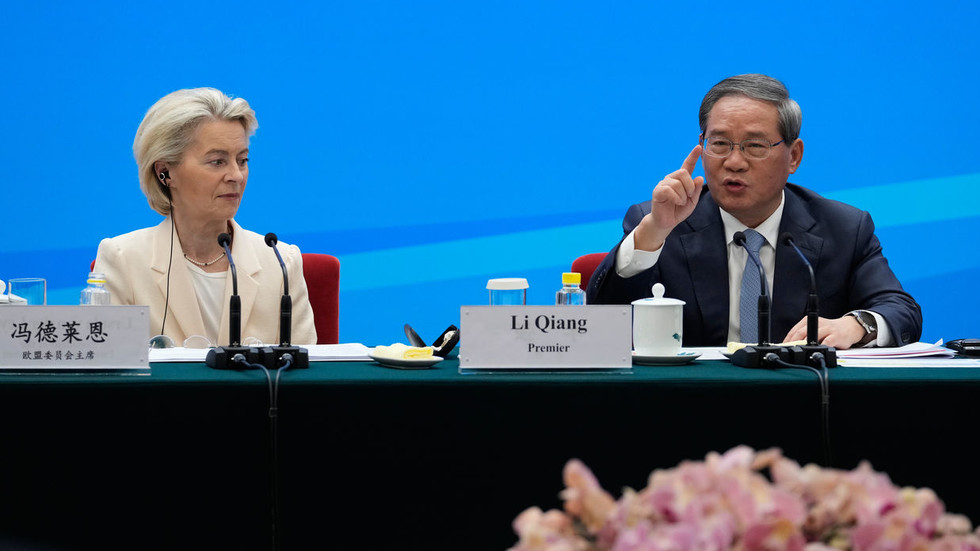The recent China-EU summit in Beijing, marking 50 years of diplomatic ties, underscored deepening fissures in a relationship once seen as a cornerstone of global economic stability. What might have been a milestone celebration instead laid bare Europe’s internal contradictions and strategic ambiguity, with geopolitical tensions and policy misalignments overshadowing opportunities for collaboration.
Held against the backdrop of Russia’s war in Ukraine and persistent global economic headwinds, the meetings revealed starkly divergent priorities. EU leaders pressed China on trade imbalances, alleged security risks, and Beijing’s ties to Moscow, while Chinese officials emphasized shared interests in green technology, artificial intelligence, and supply chain resilience. No significant breakthroughs emerged, reflecting a partnership strained by competing visions and external pressures.
Central to the rift is Europe’s 2019 decision to label China a “systemic rival,” a shift that reshaped engagement under European Commission President Ursula von der Leyen. This pivot, framed as economic “de-risking,” has translated into tariffs on Chinese electric vehicles, restrictions on tech investments, and the exclusion of Chinese firms from EU public contracts worth over €5 million. Brussels further strained ties by sanctioning two Chinese banks over alleged Russia links, a move Beijing criticized as politicizing economic tools. Paradoxically, the EU’s rhetoric of “strategic autonomy” clashes with its reliance on U.S.-aligned policies, frustrating Chinese calls for Europe to act as an independent counterweight to unilateralism.
Von der Leyen’s mixed messaging in Beijing—assurances of openness juxtaposed with G7 warnings about a “China shock”—mirrors broader contradictions. EU diplomats simultaneously accuse China of fueling the Ukraine conflict through its Russia partnership while urging Beijing to mediate peace talks, a stance Chinese officials dismiss as unrealistic. Meanwhile, trade data reveals the interdependence both sides struggle to reconcile: the EU and China account for one-third of global GDP and nearly 30% of merchandise trade, with bilateral investment surpassing $100 billion.
As Brussels walks a tightrope between transatlantic loyalty and economic pragmatism, Beijing positions itself as a stabilizing force advocating multilateralism. China has pledged to deepen cooperation in sectors critical to sustainable development, including renewable energy and digital infrastructure. Yet progress remains hamstrung by Europe’s hardening posture, which analysts warn could isolate the bloc and undermine its competitiveness.
The summit’s outcomes suggest a relationship at a crossroads. While economic logic favors collaboration on climate goals and technological innovation, geopolitical fault lines—particularly over Ukraine and U.S. influence—show no signs of narrowing. With EU leadership divided between ideological hawks and business interests advocating engagement, the path toward balanced partnership appears fraught. As both sides acknowledge the stakes of their economic symbiosis, the question lingers: Can Europe reconcile its strategic ambitions with the pragmatic demands of a multipolar world?
